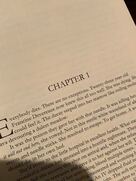 One or two people in the past have asked me, "How do you come up with those crazy plots?" Usually, the question is followed with an expression on their faces that makes me wonder if they're about to call the police or the local mental hospital. Well,...it all starts with a "What if...?" as in, "What if aliens visited the earth and demanded we give them our teens or they'd incinerate the planet." Or, "What if the only thing stopping global thermonuclear war was a lone computer genius and his laptop?" Once I have the "What if...", I try to imagine an ending. After all, with any journey you take you want to know where you're going before you start out. After I have an idea of a good ending it's a matter of coming up with a "hook" with the opening chapter. Then comes the hard part: the middle. I've taken some time away from plotting my next novel to write this post. So, I'd better get back to work before the guys in the white suits with the straight jackets come a knocking.
0 Comments
 After moving to Orlando I, like most people, had tons of boxes to unpack. On unpacking a container of books I found an old notebook that I had used to write poems. Following recommendations from a book entitled Writing Poetry From The Inside Out, for a period of time, I wrote a poem a day using a template that required me to use four key words. The poems created were called poem sketches. Periodically, over several years, I wrote a multitude of poems, some good, some not so good. Over this period of time I found poetry actually helped with my novel writing the way warmups help an athlete before a competition. There were several specific ways poetry helped me in my novel writing:
 Recently, I received a Kirkus Review of my novel, The Proxima Plague. I was hoping for just something positive. After all, Kirkus is known for their sometime scathing reviews of even some very successful authors. My previous novel, Lethal Paradise, got a positive but tepid review from them. And, to be honest, I had to agree with the assessment. So, when I got the notification that the review was done, I felt a little apprehensive. Would this one be as good as the previous one? Or, would it be castigating to the point of verbal torture? I opened the email and began to read. To my astonishment, It was a glowing review. Not only was it a Starred Review. According to their website, a Kirkus Starred Review, “…is one of the most prestigious designations in the book industry.” You’d think I’d be over the moon. But, the first thing that came to mind was that old Groucho Marx one liner: “I refuse to join any club that would have me as a member.” I was coming down with a case of Imposter Syndrome, a feeling of self-doubt in spite of accomplishments. At any moment I thought I’d get an email from Kirkus telling me that a mistake had been made and that the review was bogus. But, no such email has arrived. When I told my older daughter about the review and my reaction, she had the best advice. She told me, “Dad, just take it.” It’s now been over two weeks since the review has debuted, and so far no email recalling the review. You know, I think I’ll just take it. If you're interested in reading the review, click here. 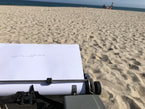 Being retired now affords me more time to write. I want to do this full time. But, to be honest, I struggle with turning an avocation into a vocation. In other words, I have a hard time writing on a regular schedule. Several years ago I read a “how to” book on writing and the author insisted you set a daily goal of at least three type written pages per day. Based in that schedule, you’d have a 270 page manuscript in about 90 days. A fairly decent sized book. Sounds pretty doable, doesn’t it? And, I’ve, for the most part, followed the advice. Even when I would get stuck on a chapter I’ve just found another chapter to write. Some scene I know would need to be included to advance the story. So, how do the greats do it? Let’s say Stephen King, for example. He writes 2000 words or six pages a day between 8 or 8:30 am and 11:30 to 1:30 pm. This is seven days a week without fail, by the way. He stated that at that pace you’d have a complete first draft within about three months. Lee Child, the creator of the hulking, take-no-prisoners character Jack Reacher, writes 1500 words per day. The late Robert Parker, the author of novels about the wise cracking private detective Spencer, wrote about ten pages per day. What about the great literary giants of the past? Mark Twain wrote about 1400 to 1800 words per day. The Ulysses author, James Joyce, wrote only 90 words per day. And, Nobel Prize winner Ernest Hemingway wrote 500 words per day. What all these great authors had in common was and is consistency. I guess the lesson for me is to find the time to get in my three pages per day. So, excuse me, I’ve got a few more manuscript pages to get in. 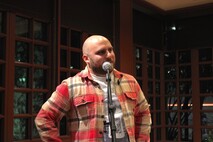 The best lesson I learned about perfecting your craft came during a Royal Caribbean Cruise. My family and I enjoyed the evening shows put on after dinner. On one night a comedian, Rondell Sheridan, performed. Rotund with a smile and demeanor that would make you proud to have him as your next door neighbor, Sheridan did a set during the after dinner hour. There were two other comedian that performed on the cruise. Over the course of the seven days at sea, all three did two sets. One during what I call the family hour since parents and children were in attendance. And the material had to be family friendly. Read funny, but not side splitting. The second was for adults only. This is were the blue material was unleashed and the comedians were supposed to be the most hilarious. Read laughed so hard I wet my pants funny. I attended both sets of the other two comedians. The bottom line was they were not very funny. Their family hour sets were blah. Their adult sets were profanity laced and seemed more of an excuse to curse up a storm than to tell jokes. On the night that Sheridan did his family hour set a mother and her approximately twelve year old daughter walked in late and took seats near the front of the stage. Sheridan stopped his planned routine of jokes and began asking the mother and daughter questions. Based on the answers he began riffing. He did what comedians call “writing on stage”, essentially being funny by just talking about random subjects. That hour was the funniest I’d ever experienced. All done with no blue material and no curse words. What separated Sheridan from the other two? The more I thought about it the more I realized it had to be hard work. Sheridan had to have tried and failed countless times on the comedy stage, but each time learning something from the effort and using the lessons to hone his craft until he was on top of his game. Even then not resting, but continuing to work hard, learning, and getting even better. The take away message for me is if I’m going to get better as a novelist I’ve got to be like Rondel Sheridan. I’ve got to keep reading and writing regularly. Not being afraid of failure or criticism. Learning and growing. Most importantly, never giving up.  It’s a rainy Saturday afternoon, your chores are done and there’s nothing good on the TV. You go to the bookshelf and pull a volume from the stacks. What is it? When you have time to curl up with a good book what’s your go to genre? I tend to relax with a well-written book on history. Generally, World War II or American history. I am fascinated by questions such as, how could France with arguably the largest and best equipped army (and the best tanks) in the world be defeated by Germany in 1940? Or, why did Japan declare war on the United States knowing that their war industry could never equal that of America? Or, maybe why did President James Madison want Congress to declare war on the most powerful empire on the face of the planet in 1812? Questions like these have always intrigued me. And, since “experts” may disagree on the answers, there’s always an interesting point of view popping up. Which means a new volume on the subject. And, a new gripping read. What’s your go to genre for a relaxing read? I’d love to hear from you. 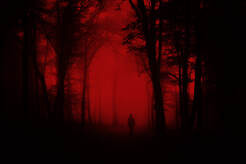 I recently wrote a novel entitled The Proxima Plague and received a review that mentioned the novel as "horror". While I didn't think of the book as a horror story while writing it, I began to wonder: Why do we love scary stories? After all, our natural reaction to scary things is the so called "fight or flight" response: a surge of adrenalin which allows us to survive an existential threat by either runny away or attacking the peril head on. The threat may be dealt with but, afterwards we're left shaken and drained. Some psychologists and aficionados of the genre would tell us that we enjoy them for the adrenalin rush similar to the feeling we get on riding a roller coaster with the near ninety degree drop. Afterwards we become more alive thanks to a quickened pulse and shaky knees. A different take on the after effects of that adrenalin rush. Or, it may be the closeness some couples feel after experiencing a horror movie. Yeah, who would have thought that watching Jason slice up a dozen or so bodies could be a bonding experience? An even darker explanation is we like seeing the blood and gore. Perhaps that's why each new generation of horror movies seems to ratchet up the cartoonish violence and body count over the previous crop. There may be another reason for our love of fright: it helps us face our fears. Since we are thinking rational animals we learn from bad experiences. And I guess watching a scary movie or reading a horror novel could be classified as vicariously living through a bad experience. So, how does it help us face our fears?
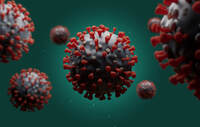 Honestly, I started it before the beginning of 2020. My initial outline involved my heroine infiltrating an underground cabal selling medical research to find a cure for an ailing child. But, it was missing something—not enough conflict and high enough stakes. So what if she steals vital information and is chased by the bad guys? It’s been done before. I needed something unique, something with really high stakes. Then it hit me. What if the illness my heroine sought to cure was a heretofore unknown virus that didn’t just affect one person but the entire planet? And not just a flu-like illness but a universally fatal illness that caused a small subset of patients to morph into near supernatural creatures. There, I had it. The stakes were raised about as high as they could be: solve the problem or face extinction. With outline in hand I did some research on epidemics, the CDC, and viruses and began to write. As I started writing it happened. The Covid-19 pandemic began. I was writing about a fictional pandemic during an actual one. Let me stop right here to say that I’m not bragging that I in any way foreknew that Covid was coming. It was a coincidence. I was as shocked by the turn of events as anyone else. Now, the burning question was should I stop writing about a fictional pandemic during an actual pandemic? After all, real people were getting sick and dying. At the time I was working part time as a hospitalist. The VA hospital I worked in was not on the frontlines of the fight against Covid, but still the risk always loomed as we were required to don N-95 masks, face shields, gowns, and gloves to see new admissions. I asked a couple of physician colleagues what they thought about me continuing to write after sharing the storyline. Both were intrigued by the plot and responded with an enthusiastic yes, I should continue writing. My writing in a strange way helped me cope with the uncertainty and isolation that accompanied the early days of the pandemic. I suppose a way of facing your fears is to write about them. This is why journaling is considered a healthy way to cope with stress and anxiety. The compelling theme—love and sacrifice—was something I wanted to explore in the context of a pandemic. This also drove me to continue to write. Lastly, the precedent of famous writers played a part. Daniel Defoe and Albert Camus both wrote eloquently about plagues. I recently completed my novel, entitled THE PROXIMA PLAGUE. It was a wild exhausting ride chronicling the tragedy and triumphs of my heroine caught up in a pandemic all the way to the fantastical denouement. Check it out. I think you might like it.  When does research become a burden? You’ve got this great idea for a novel, but, first, you need to do “a little” research. You go to the library and check out three or four great reference books. You know, the kind that can double as door stops. You scour the internet and download a ton of articles on your subject. You copy and paste dozens of quotes and tidbits. At last you’re ready to start your research. As you plow through those massive tomes and cutting edge papers the minutia begins to pile up. You find that your detective hero can’t get the DNA test back in 24 hours (it takes about two weeks for most DNA tests to come back from the lab) and that upsets the timeline of your plot. You learn that blood coagulates pretty quickly so your antagonist couldn’t return to the crime scene two days later, get blood on his shoes, and leave a blood trail down the street. Then you learn that your detective hero can’t be fired by his captain on the spot. It takes quite a bit of administrative gymnastics to fire someone working in any government job, be it local, state, or federal. Then you find... Hey! Time out! Research is essential for any good genre novel but don’t let it get in the way of a good story. Use the information wisely. Don’t stress over those tiny facts, especially if they are of little consequence to the overall plot. Here are some morsels I’ve learned over the years that might help you in your research:
 Who is Hope Allerd, the protagonist of my new novel, Lethal Paradise? She is a dynamic, heroic, compassionate twenty-first Century woman. As an adolescent she, her parents and brother, came home from an outing to be surprised by a burglar. He shot and killed her mother and father. Her brother, Jack, was made a paraplegic. Hope was wounded and endured a prolonged hospitalization. But, Hope overcame this traumatic adolescence. She also survived a close encounter with a serial murderer. This is chronicled in my previous novel, The Peril Protocol. Left with PTSD from the above traumas, she struggles against this psychiatric problem while also dealing with the ups and downs of a tumultuous romantic relationship with investigative reporter Clive Andrew, her boyfriend. Hope isn‘t perfect but she continues to seek to do the right thing. She is a physician with a sub specialty in infectious diseases, and as stated in a previous blog post, Hope Allerd wields compassion like a weapon against poverty and despair. Hope, I feel, is a role model for young women, especially young African-American women who are considering a STEM career—in the same vein of how the Star Trek franchise inspired an actual young African-American girl to become an astronaut. Check out Hope’s adventures in my current novel, Lethal Paradise, and in my next novel due out in July 2020. |
Archives
June 2023
Categories |
 RSS Feed
RSS Feed